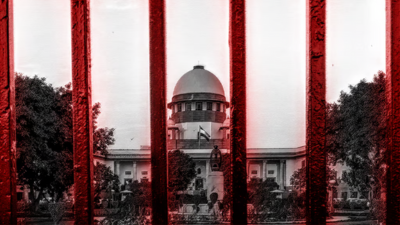Supreme Court’s Landmark Verdict on Caste Discrimination in Jails: Ten Key Highlights
A Call to End Caste Stereotypes in Prison Labour: The Supreme Court has strongly condemned caste-based discrimination in jails, particularly in the assignment of menial tasks based on caste. The judgment emphasized that such practices violate constitutional values and must be eliminated.
Colonial Practices Must Not Persist: The Court noted that criminal laws must not uphold colonial or pre-colonial ideas that reinforce caste divisions. During British rule, caste discrimination inside prisons was ignored, but such practices cannot continue in modern India.
Denotified Tribes Must Not Be Stigmatized: The Court highlighted the historical discrimination against denotified tribes, who were unfairly labeled as “criminal tribes” under colonial laws. The stigma persists in prison manuals where such groups are still classified as habitual offenders without any basis. The Court ruled that this must end.
Caste-Based Segregation Unacceptable: The Court rejected the practice of segregating inmates by caste in prisons, even if it is done to prevent conflicts between rival groups. Such segregation, it said, violates the fundamental rights of prisoners and is not a legitimate tool for maintaining discipline.
Right to Overcome Caste Barriers under Article 21: The judgment extended the interpretation of Article 21, the right to life and personal liberty, to include the right of individuals from marginalized communities to overcome caste barriers. Caste-based prejudices, the Court said, hinder personal growth and violate the right to life.
Menial Work Based on Caste is Forced Labour: Forcing inmates from marginalized castes to perform menial tasks, such as cleaning latrines or sweeping, based solely on their caste background, constitutes forced labour under Article 23. The Court made it clear that this practice is impermissible.
Multi-Faceted Approach Needed to Remedy Discrimination: The Court called for comprehensive, systemic reforms across institutions to address the ongoing discrimination against Scheduled Castes, Scheduled Tribes, and Denotified Tribes. Concrete steps must be taken to dismantle these discriminatory structures.
Rejecting the Notion of “Scavenger Class”: The Court rejected the notion that any social group can be labeled a “scavenger class.” This label, based on caste-based notions of purity and pollution, is a product of untouchability and must not be perpetuated.
Failure to Address Caste Discrimination Reinforces It: The Court stated that failing to address caste-based practices in jails cements their continuation. Caste oppression cannot be ignored, and the Constitution mandates an end to such discrimination.
Gaps in Legislation and Manuals: The Court criticized both the 2016 Model Prison Manual and the 2023 Model Prisons and Correctional Services Act for being vague on definitions like “habitual offender” and for not explicitly prohibiting caste discrimination. The Court made it clear that no prisoner should be forced to engage in manual scavenging or hazardous work, calling for revisions to these legal frameworks.
This ruling marks a significant step towards ensuring equality and dignity for all prisoners, regardless of their caste, and sets a precedent for further reforms in India’s criminal justice system.

















